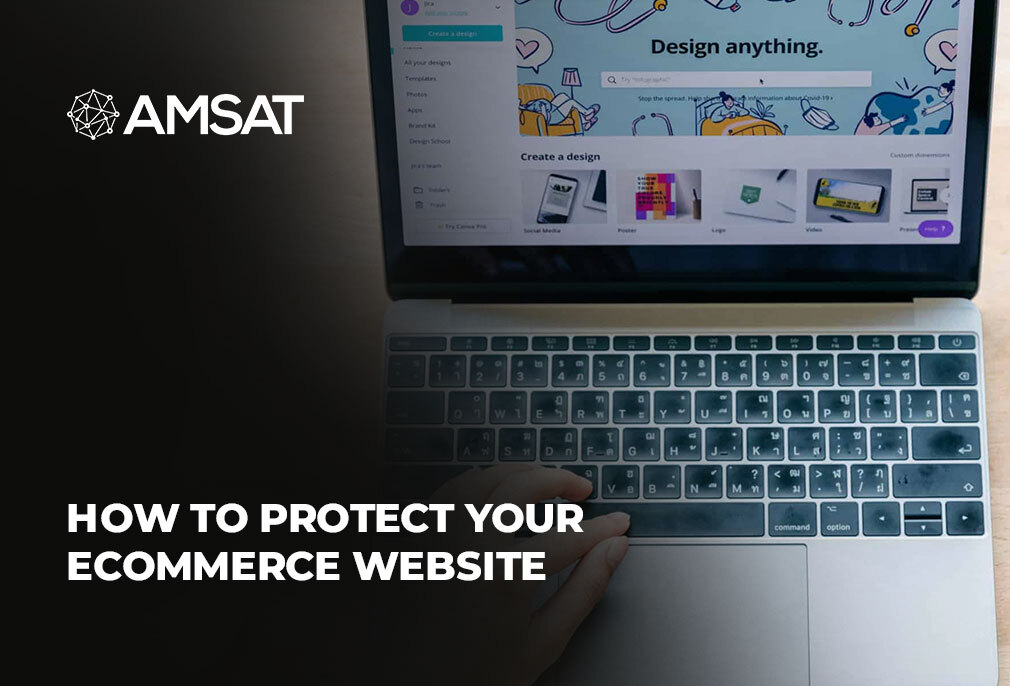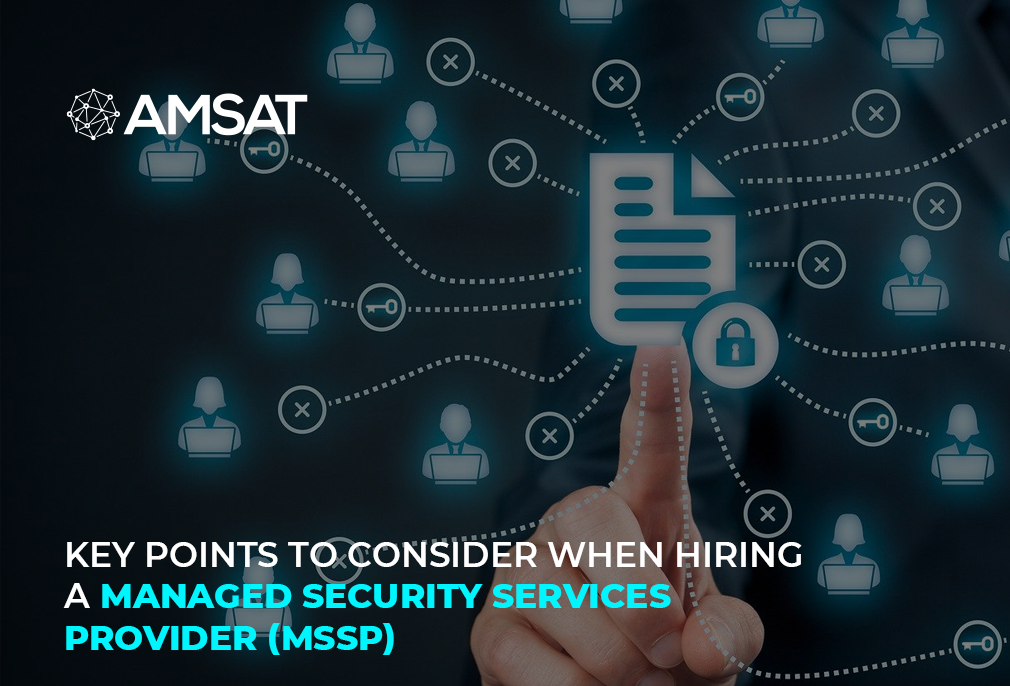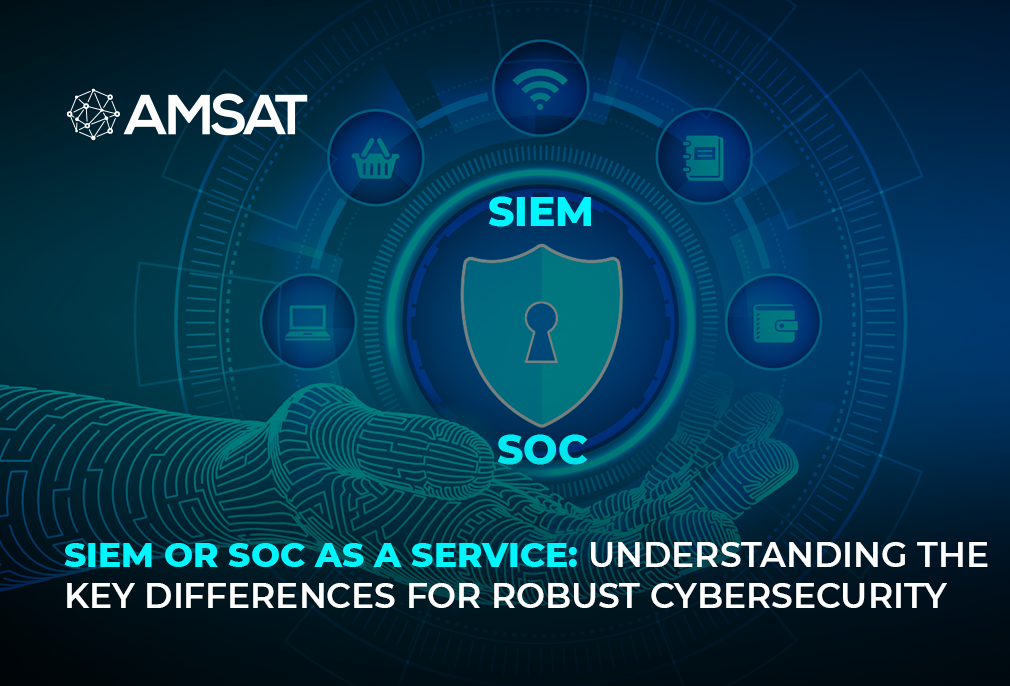Latest Blogs

By AMSAT Feb 21, 2023
How to Protect Your Ecommerce Website
Starting an online business and developing an ecommerce website can be tough and exciting given the online business sector’s stratospheric rise. However, many business owners take their ecommerce website’s security for granted and seldom ever take any precautions to make sure they are guarded against intrusions from different types of hackers. They are, to put it bluntly, living in a fool’s paradise!
There is a silver lining, though! You can still secure your website against any potential cyber-attack if you adopt a few effective preventative measures.
So, what exactly is ecommerce security?
The most crucial component of an ecommerce website is, or ought to be, security. The risk of fraud and identity theft is constant for those who don’t maintain strong security. For instance, compromised credit card information might severely damage your accounts and cause a significant loss to your company.
You shouldn’t assume your business is secure just because it’s small. The truth is that attacks on small firms happen more frequently than on larger ones. And hackers legitimately feel that ecommerce websites are not adequately safeguarded.
Small ecommerce websites are constantly in danger, according to research. In addition to actual financial scams, data or security breaches damage the trust of your brand. Which means that your clients won’t feel comfortable making purchases from you if you don’t pay money to safeguard a website. Additionally, you won’t be able to attract new clients after a security breach, let alone obtain repeat business. Therefore, the key to successful ecommerce is ensuring that both your company and your customers feel secure.
Website security is no longer an expensive endeavor that can only be carried out by businesses with sizable IT departments; even a small business or an individual on a tight budget can simply assure the security of their websites. For the successful operation of an ecommerce firm, large or small, ecommerce specialists typically stress the following fundamental and most significant ecommerce website security elements.
Use an SSL certificate and make sure it complies with PCI
An SSL is a digital certificate that encrypts information exchanged between a web server and a web browser, making it a reliable solution to protect your customers’ data online. Additionally, it alerts visitors that your website is safe enough for them to enter their credit card information.
Key credit card brands developed PCI compliance as a security requirement in an effort to reduce fraud and improve the security of ecommerce websites.
Employ a real-time bot detection system
Although everyone wants more website traffic to increase conversions, not all internet traffic is reliable or trustworthy. Over 50pc of all internet traffic is made up of bots, and malicious bots account for 30pc of ecommerce website scams. What you may see as an increase in legitimate traffic may actually be malicious bots used by your competitors or fraudsters to quickly steal all of your product information, customer information, or vendor information.
The impact on an e-commerce company may be large in terms of compromised website security, dismal sales, and lost opportunities. Additionally, computer programs that continuously search online stores for pricing information are likely to visit numerous pages and use up server resources.
Utilize a web application firewall
A web application firewall (WAF) is a piece of hardware or software that essentially acts as a doorway between two or more networks, letting allowed traffic through while blocking unauthorized or potentially harmful traffic from connecting to the network.
Typically, WAF protects websites from well-known assaults including DDoS attacks, SQL injections, and cross-site scripting (XSS).
However, a firewall must be correctly configured in order to work.
Select a secure online store platform
Make a thorough investigation before choosing a particular ecommerce platform. You must ensure that the foundation of an ecommerce platform is an object-centric programing language with certain built-in security measures.
If you decide to utilize WordPress as your platform, pick a WordPress security plugin to give your website an additional layer of protection. Keep in mind that ecommerce systems do not offer a bot mitigation solution, a crucial component for ecommerce websites from a website security standpoint.
Devise a strategy to eliminate customer data
The best way to ensure that your data is not prone to cybercriminals is simply to not keep that data in the first place. Then, only save the information necessary for chargeback accounts, refunds and credits, and package tracking. For marketing purposes, you will need to maintain names, addresses, and emails on file, but you should carefully choose what information you save and why.
Encourage clients to use secure passwords
They won’t care that their lack of omission might have made things worse if a customer’s information is compromised. They will be concerned that their information was compromised and that they incurred financial loss as a result. You should establish strict password policies that require users to use capital letters, unusual characters, and lengthy passwords.
Inform your staff about online security
Human error plays a significant role in many scams. During a live support chat or on social media, your customer service agent could share your account number. Someone who claims to have forgotten their password could get a login and password from another over the phone. All of this may be avoided by creating stringent privacy and security policies, educating staff members about them, and offering ongoing refresher training.
Conclusion
The success of your business is largely dependent on the establishment of robust e-commerce security. Exposing your customers’ sensitive information may put your company in a pickle and erode its credibility. You cannot afford to risk losing your customers’ trust by exposing their private information. By adopting a cybersecurity platform like AMSAT, you may set aside the stress of your company’s security infrastructure and focus, instead, on growing your business.
That doesn’t mean you have nothing to do, though. Using strong passwords, exercising caution when clicking links and downloading files from communications, and regularly checking your third-party integrations are essential.
TAGS
- Cyber Security
- Ecommerce Security
Recent Blogs
Ready to Get Started?
Our specialists are ready to tailor our security service solutions to fit the needs of your organization.









